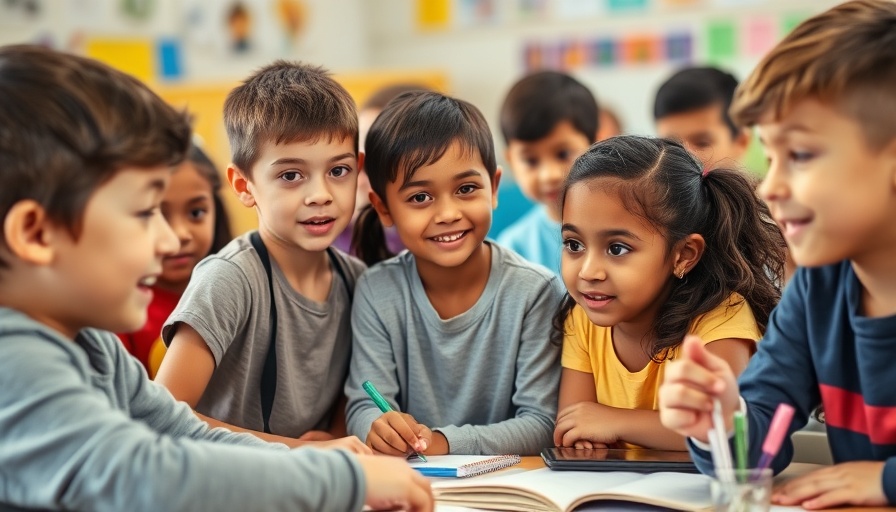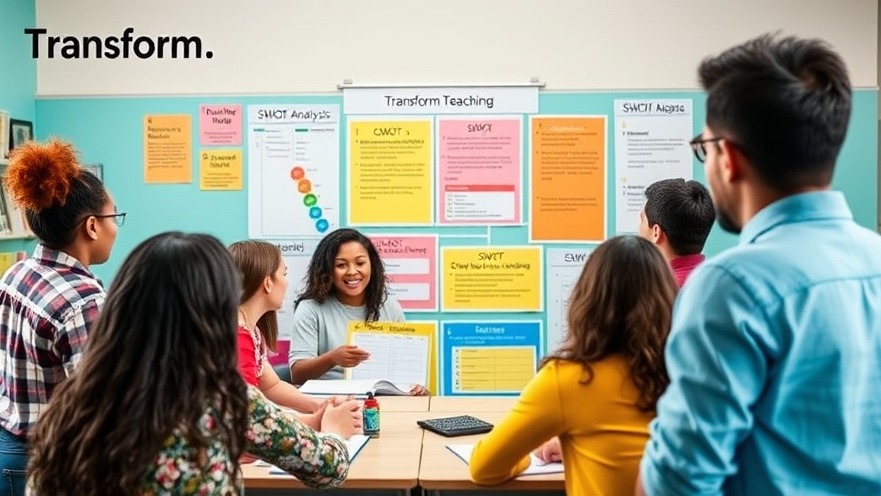
Understanding Social-Emotional Learning in Today’s Classroom
Social-Emotional Learning, commonly referred to as SEL, has swiftly emerged as a cornerstone approach in educational systems across the United States. It focuses on teaching critical life skills, such as empathy, resilience, and problem-solving—all crucial for students' long-term success. However, its rise has not been without controversy, raising questions about the motivations and implications behind its implementation.
In 'What’s Behind the Political Criticisms of Social-Emotional Learning?', the discussion dives into the increasing scrutiny faced by SEL in schools, exploring key insights that sparked deeper analysis on our end.
The Rise of Backlash Against SEL
In recent years, especially since the 2020 election cycle, social-emotional learning has come under fire from many conservative activists. Critics allege that SEL serves as a means to veer into politically charged subjects, such as racism and sexuality, which they believe should not be a part of school curricula. An FAQ document from the Department of Education dated March 1st pointed out that SEL is viewed by some as a vehicle for discrimination in schools. As those at the helm of educational reform fight to define and defend SEL, the approach has become entangled in the broader cultural wars in America.
The Benefits of SEL: A Closer Look
Despite the criticisms, many educators and experts advocate for the integration of SEL into daily lessons, arguing it enhances students' academic performance and overall school climate. SEL not only helps in molding students’ emotional intelligence but also supports teachers in managing classroom behavior, contributing to higher retention rates amongst faculty. Parents from various political backgrounds appreciate the life skills that SEL aims to impart, indicating a fundamental recognition of its potential value.
A Divided Perspective: Public Opinion on SEL
Research revealed surprising trends regarding SEL's perception among parents, particularly those identifying as Republicans. A study conducted in 2021 showed that while SEL practices may enjoy support on an individual level, the terminology and the concept itself face skepticism. This divide raises questions about how education systems can effectively communicate the defining characteristics and positive outcomes associated with SEL, particularly in politically polarized environments.
Educational Strategies and SEL Implementation
The methods of implementing SEL greatly vary. Some districts offer SEL as a discrete course, while others embed it in subjects across the core curriculum. As schools adopt various strategies, the emphasis is on adaptability and responsiveness—principals and administrators are charged with tailoring SEL programs to meet the specific needs of their student populations. As educational leaders navigate this landscape, continuous dialogue between stakeholders is crucial to ensure a clear understanding of SEL and its advantages.
Looking Ahead: The Future of SEL in U.S. Schools
What does the future hold for social-emotional learning? It seems the core principles of SEL are likely to persist, even if the term itself shifts in public discourse. Potential alternatives may emerge to sidestep political controversy without losing sight of essential life skills that students need to thrive. Educators and policymakers may need to collaborate closely to safeguard SEL's foundational benefits while addressing the concerns of dissenting voices.
Actionable Steps for Educators and Administrators
For educators seeking to implement SEL within a politically charged backdrop, transparency and community engagement are vital. Schools can host workshops and discussions that educate parents about the value of SEL, dispelling myths and clarifying its objectives. Open forums could foster collaboration among administrators, teachers, and parents, ensuring that SEL is implemented in a way that resonates with the values of the community.
Conclusion: Embracing the Complexity of SEL
Social-Emotional Learning stands at a crossroads, navigating between transformative education approaches and sociopolitical challenges. As teachers, school administrators, and parents, there is a shared responsibility to engage with SEL constructively, embracing its potential for positive student outcomes while addressing the valid concerns raised by critics. In doing so, we can ensure that our schools become nurturing environments where every child is equipped with the life skills they need to succeed.
 Add Row
Add Row  Add
Add 




Write A Comment